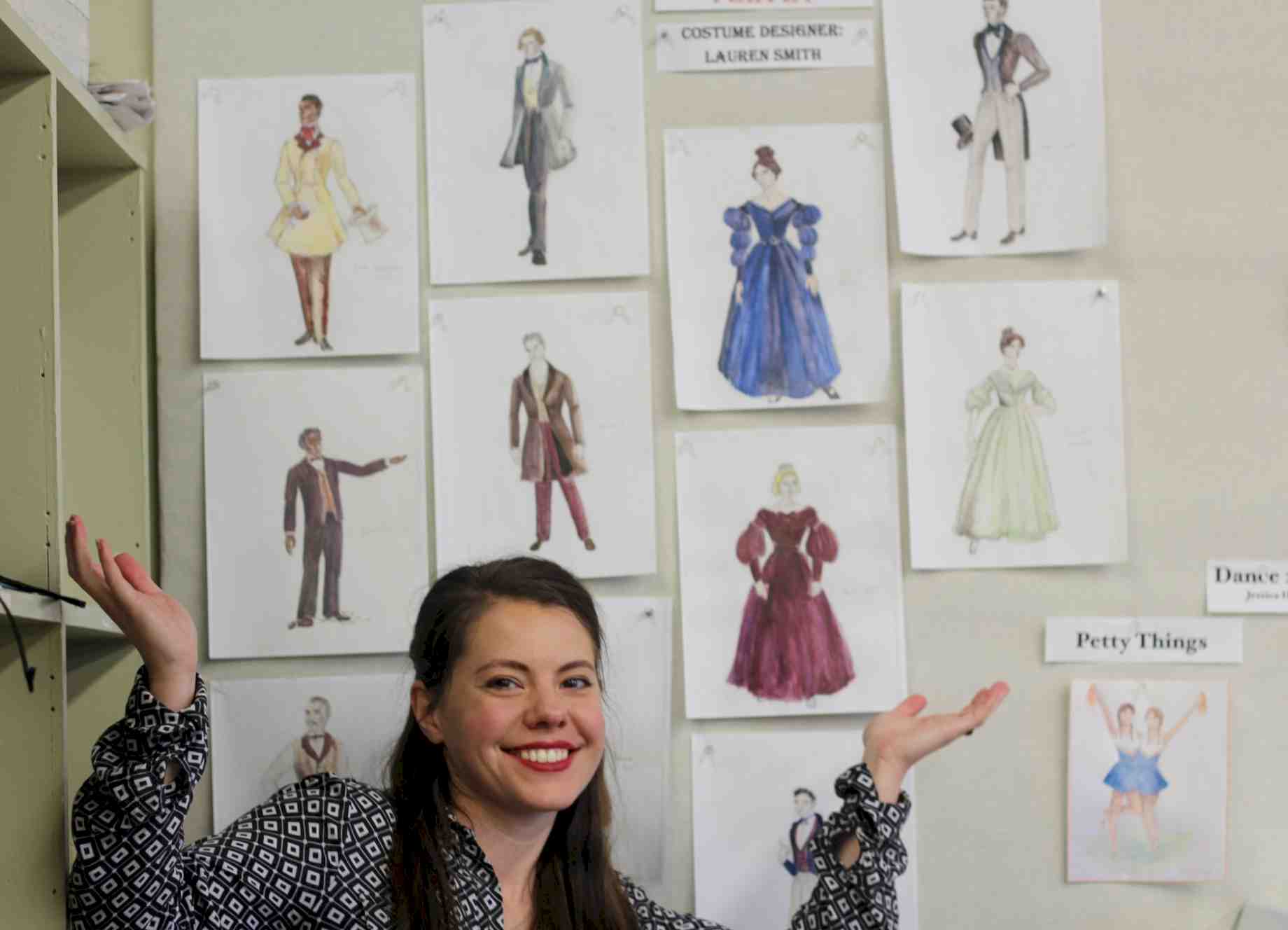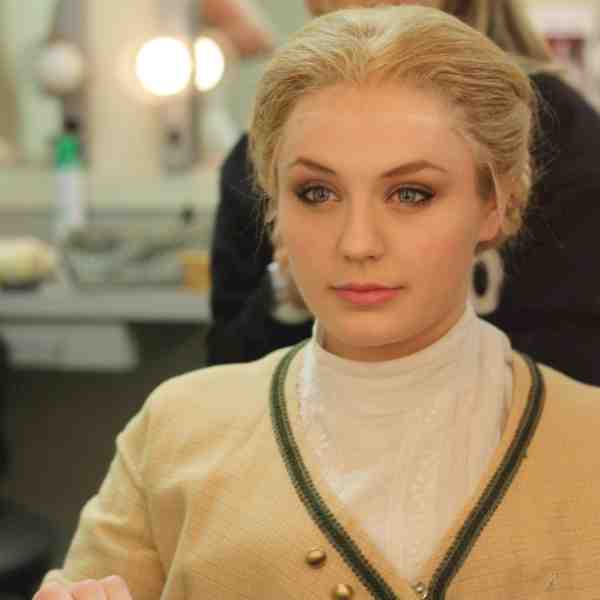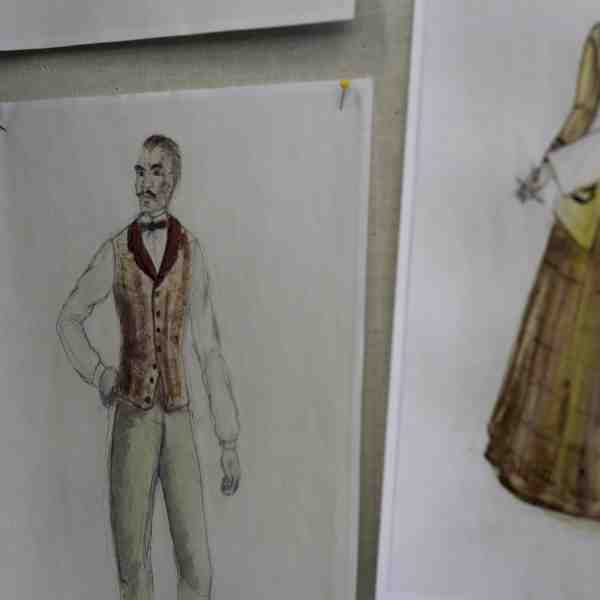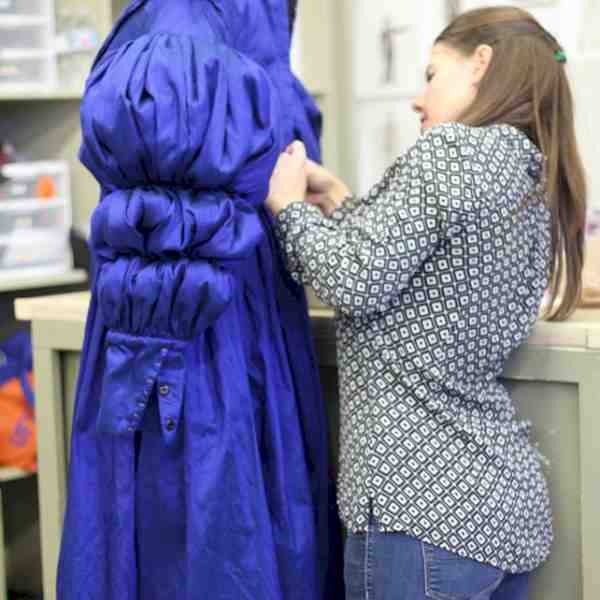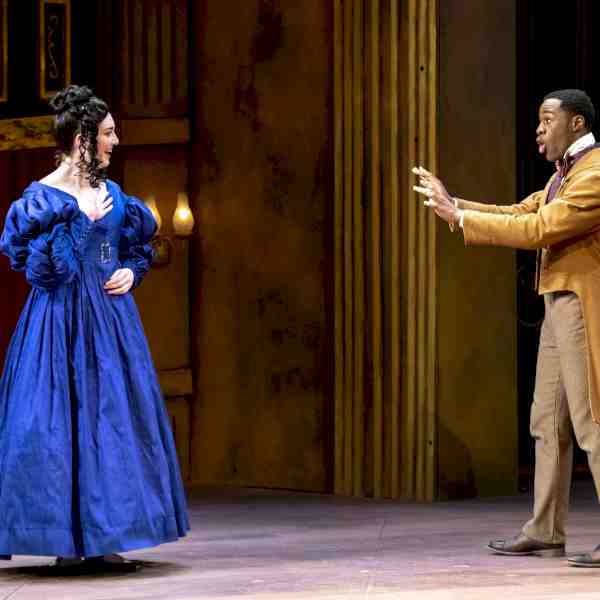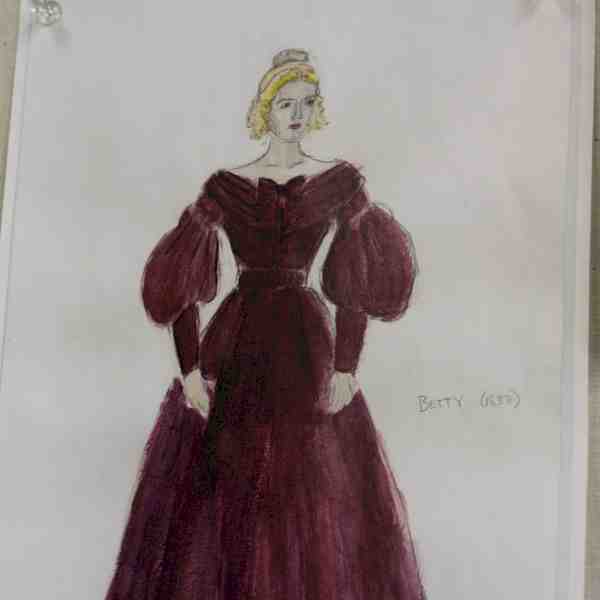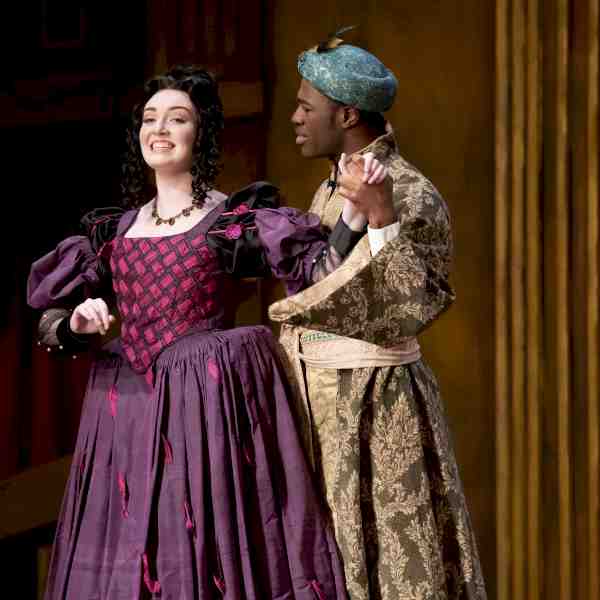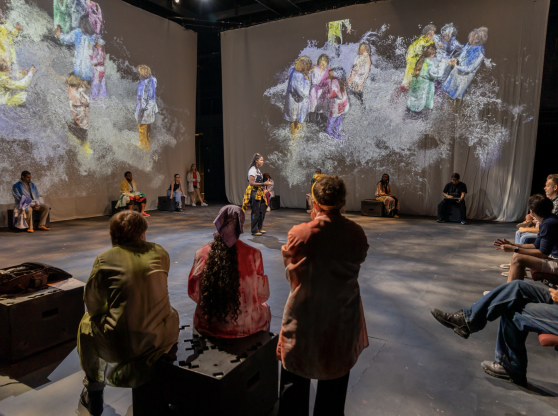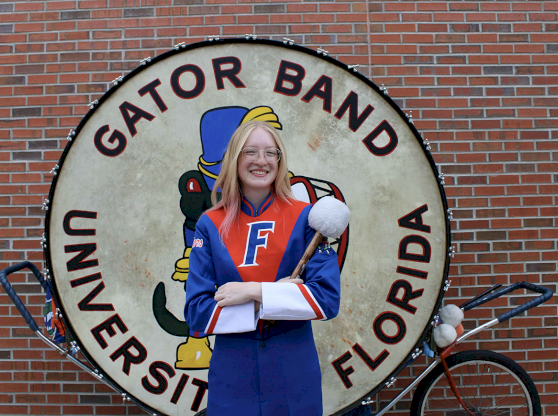Lauren Smith, a third-year MFA costume design student, recently completed her senior thesis project as the head costume designer for the School of Theatre + Dance production of Red Velvet. In this interview she talks about the exciting aspects as well as the challenges of working on such an emotional, thought-provoking, period style piece set in 19th-century England.
Emma: First off, what inspired your initial costume designs for Red Velvet? How effectively did your original designs play out?
Lauren: Like with any costume design, it typically starts with the script. There was this task of looking at the character that the play centers around, Ira Aldridge. I became inspired by the contrast, not only of Aldridge trying to break barriers within the theatre industry as a black performer in the 19th century, but even just as an American learning to perform in England. I wanted to make him stand out in a good way.
E: Pushing the boundaries is crucial to the story of Red Velvet. So within your costume design, how did you portray this theme?
L: Since Red Velvet is a period play, there are certain rules that have to be followed in terms of costuming that are crucial to the time period. Details like the waistcoat should hit a man at a certain point, and his pants have to be high waisted.
However, one interesting thing that I was able to do that a lot of costume designers don't do is I put all the men in the 1830s scenes in corsets.
In 19th century, a lot of men wore waist trainers and corsets as well as the women. Typically, whenever we do period shows we only make the female actors wear corsets. I brought up the idea of the men being in corsets to Dr. Pinkney and he really liked it. Also, as a university program and for the sake of their professional training, having the men learn to act in waist trainers is a good skill for them to develop. Even though the corset isn't necessarily obvious to the audience, it changes their posture as well as the way they move act.
E: Why are you excited to be involved with sharing the story of Red Velvet?
L: It was interesting to learn more about a piece of theatre history that I only really knew on the surface. In my undergraduate theatre history courses, we learned about Ira Aldridge and who he was, but we didn't really get to go into the details of this iconic piece of theatrical history. So with that, it was nice to work on a piece that led me into getting to know more about Ira Aldridge, a person that I previously only knew on the surface, barely.
Reading the script made me think about the barriers this man had to work with and how talented he really must have been to be able to accomplish what he did with all the prejudice he faced.
One thing that I do wish the script showed more of is just how celebrated this actor was by the public. While watching the play, the audience gets to see the injustice he had to deal with from everybody in the theatre industry, but people really loved to watch this guy perform. The script mentions that he sells out theatres all over Europe, but because of the hierarchy and bureaucracy of the theatre system in London, most of the hardships he had to deal with was from his boss, co-workers, and the inherent structures within society.
E: More generally, what made you decide to major in costume design?
L: Ultimately, it happened over a series of several decisions that I made throughout my life. I learned how to sew from Grandma as a kid. I was always good at that initial skill. When I went to college, I went on an acting scholarship. I quickly developed a passion for costume when discovered by a costume shop person because they saw that I knew how to sew. Over the course of college I took design classes and I got super interested in costume design and how it relates to helping the character development and helping to tell the story. Even though I completed a BFA in musical theatre, I was getting hired for costume related jobs. I am just fascinated in the relationship between the costume and the creation of the character.
E: What is your biggest fear when it comes to executing your costume designs?
L: My biggest fear is that I or the director won't like it. Another one of my fears is that the creative team will change their concept or minds at a point in the game where it is too late to change anything about the costumes. Along with designing costumes, I also fear living with something that I am not 100% totally satisfied with, being put on stage.
E: What is most rewarding about being a costume designer?
L: I love dress rehearsal week! It’s exhausting, but there is something about whenever an actor really feel good in their costume.
I think just about any costume designer will talk about that moment where the actors put on their costume and suddenly that last bit of getting into character just clicks for them.
Suddenly the actors are at 110%, and there is something really great and wonderful in knowing that you've helped them to achieve this. After months of fittings, it's nice to finally see all of the costumes on stage at once, and having that sigh of relief of having successfully created this world where everything is cohesive and makes sense.
E: What is the craziest situation you have ever been in as a costume designer?
L: We did a show here at the University of Florida as part of our summer repertory season called the Magnificent Revengers. This production was brought to us by Tilted Windmills, a production company who typically brings a piece as part of out summer show. This script, which is now being produced Off Broadway, is a choose-your-own-ending piece. Basically, there is technology where people log in on their phones with a room code, and from there the audience votes on what choices the characters make throughout the play. As the audience makes these choices, everything on the technical side of things is forced to adjust. It completely changes the way you create your costume plots and they way you communicate with your wardrobe team.
E: What are your plans and aspirations for the future?
L: The number one goal is to try and get back to Missouri, which is where both my fiancé and I are from. I want to get back to my home city and build my career as much as I can there. My fiancé just landed a job for an events company in St. Louis, so we will be moving there in May. I am trying to network as much as possible within the St. Louis area and hopefully design there. I would like to start teaching college at some point. A small college where I can teach intro to theatre and theatre history classes. Since I have worked in all aspects of theatre, I think I would be a good person to teach those courses. Ideally, I’d love to change the way colleges teach theatre history. Typically it is taught in a linear way and from a very western perspective, so I would like to mix it up a bit. I’d incorporate the teachings of more modern plays alongside historical ones that share the same human themes and analyze how they apply to today. In addition, I am particularly passionate about teaching the practical application of theatre skills into other disciplines. I love talking about theatre to people who don't do it for a living.
